Receive Answers via SMS. Text Your Questions to:
Instantly message our featured psychics online via psychic messenger.
Click to start
Register now to start your reading online. PSYCHIC MESSENGER- Cheapest psychic service in Australia
- Our readers are available 24/7
- 100% confidential service
- In-depth, Personal readings
- Thousands of 5* reviews
Published 15/07/2024 by Rosemary Anne
4 Types of Relationships Explained
Becoming aware of the diverse types of relationships we encounter may help us understand how we engage with others and the role of particular people in our lives.
There are 4 general types of relationships most of us will experience in our lifetimes.
The 4 basic types of relationships are familial relationships, romantic relationships, platonic relationships, and acquaintanceships based on our personal exchange with the other person in our lives. Besides their uniqueness, each type of relationship can differ in terms of their essence, nature, and the extent of their significance.
This article will help you identify your relationship type.
The Basic Types of Relationships
All humans are in relationships with others, which can take different forms depending on their nature and intent. The most common kinds of relationships include family bonds, romantic, platonic, and acquaintanceship relationships.
- Family relationships are formed due to bloodline, provenance, or marriage.
- Romantic, intimate relationships are formed with a sexual attraction or romantic feelings towards another person or sexual partner.
- Platonic relationships exist because two people bond over shared interests, dilemmas, and experiences.
- Acquaintances are based on involuntary factors, like sitting next to another person in a lecture class or someone you know because they sit at the bus stop with you in the morning.
Knowing these basic types of relationships can help us navigate the social landscape and engage in healthier and heartier relationships.
Family Relationships
Family relationships are the most fundamental networks of human relationships and nature. They usually embrace parents, siblings, and wider family members like grandparents, aunts, uncles, and cousins.
Family relationships are described by strong emotional connections, shared history, and a sense of belonging. These types of relationships may impact a person's self-identity and relationship values, moral code, and sense of meaningfulness.
People with a good support network and care from family may feel less lonely and be able to overcome psychological and physical challenges.
Romantic Relationships
A romantic relationship is a close connection between sexual partners who are emotionally, physically, and often also sexually bonded to each other. It is an interpersonal relationship characterised by feelings of love, romantic attraction and a need for closeness and physical intimacy.
Romantic relationships can be sporadic casual dating, a fling, or a more long-term relationship, such as marriage with a life partner.
These types of relationships need the effective flow of information, mutual trust, motivation, and willingness to build up the relationship and keep it functioning.
Romantic partners can be the most influential people in each other's lives as they are the primary relationships that offer each other emotional support, companionship, and a feeling of union.
Read our guide on Does Unconditional Love Exist?
Platonic Relationships
Platonic relationships are the types of relationships that are not based on romantic or sexual feelings but on mutual respect, affection, and common interests.
Platonic friendships can be emotionally fulfilling, provide stability and promote companionship and social belonging. These friends share a meaningful bond, as they might engage in social activities or offer guidance to one another.
Platonic friendships are less intimate than romantic relationships. Instead of having sexual activity, platonic friends might create strong emotional attachments, share hobbies, offer advice or are willing to listen.

Acquaintanceships
Acquaintances are people we know or know of but not particularly well. These are people with whom we have a relatively superficial social, occupational, or community relationship.
Most of these types of relationships are not close emotionally. We might know these people as coworkers, neighbours, classmates or through participation with a local group or organisation. They can help us broaden our social connections, get things done, and feel part of a community.
The key to distinguishing between these four basic types of relationships is that each type fulfils different needs and meets different expectations.
Understanding the differences between the different types of relationships helps us establish and maintain more energising and satisfying bonds.
Different Types of Romantic Relationships
Out of all the different types of relationships we experience in life, intimate, personal relationships are the ones we all seem most curious and interested in.
Romantic relationships can come in all shapes and sizes.
To cruise through your love life more effectively or if you want to know what's expected in your relationship, it pays to be familiar with the romantic relationship styles. Here are the different types of relationships you can have with a lover.
Committed
What sets committed relationships apart is that both parties agree to a long-term, monogamous, stable relationship: staying together for a long time and being together in an exclusive relationship.
The agreement implies a deeper level of intimacy, closeness, support, and trust between the partners who share a common vision for their future by cooperating, compromising, and achieving life goals together.
A committed romantic relationship is created, with the substructure being primarily trust and loyalty. It usually involves sharing a living space, getting married, or planning to be together for a long time.
Casual
Casual relationships are less about emotional attraction and more about sexual satisfaction. They are less formal and involve less serious commitment than committed relationships. They are based on physical attraction and enjoyment of one another's charisma and company.
There is no expectation of a lifetime of togetherness. An example of these types of relationships might be friends-with-benefits or polygamous relationships.
Casual relationships can be fun and satisfying. The key to making these types of relationships work is to communicate your expectations, needs and wants of the relationship from the start so you both know what to expect and where you stand.
Long Distance
Long-distance relationships are the most difficult types of relationships to maintain. These occur with both partners knowing they are physically separated for long, extended periods.
These can be difficult and challenging since they include a lack of physical touch and need a lot of quality time communicating and an exceptional level of trust.
Long-distance relationships can work, but there is a need for technology to stay connected, regular visits, and deep commitment to make the relationship succeed regardless of distance.
Situationship
A situationship is basically a romantic relationship between two potential partners that's undefined and possibly with or without commitment, and the future of the relationship is undecided.
By its nature, a situationship exists somewhere between casual dating or an affair and full-blown commitment to each other, without much transparency for whether sex is exclusive, whether they're searching for commitment, or where to visualise the future.
A situationship can be confusing and emotionally exhausting, with the potential for miscommunication and hurt feelings without good, clear conversations between both parties.
While it might provide companionship and intimacy, without explicit conversations for the future or clarity on where either person stands in the relationship, this can veer into being entangled and tied up in confusion.

Your Relationship With Yourself
How you relate to yourself is the cornerstone of all the other types of relationships. You know the saying, "If you can't love yourself, you can't truly love anyone else." There will be no meaningful relationships with others until you embrace a loving, respectful and mindful relationship with yourself.
Until you feel good about yourself and see yourself as someone worthy of affection, the more you care about your needs, wants, limits and boundaries, the easier it will be to communicate these aspects of your personality more successfully and choose healthy and meaningful relationships.
Signs of Healthy Relationships
Healthy relationships have positive interactions, respect, trust, and support. In contrast, toxic relationships are fuelled by negative emotions, arguments, and bad patterns of behaviour.
Recognising the signs of a healthy relationship can help you nurture and maintain rich relationships with others. Spotting these signs in your partnerships indicates that you are in a winning relationship.
Trust
We cannot stress how imperative trust is in any relationship.
According to psychologists and pretty much anyone with real-life experience, every solid relationship is built on trust. You have faith in your partner being honest, honourable, and reliable, which means you can freely express your opinions and emotions without fear of being judged or betrayed.
Because of this trust, partners can depend on one another and resolve issues without resentment, confrontation, or accusing each other. Trust will always take time to build, and it can be a long process, but it is worth every second.
Comfort
What is the meaning of comfort in a relationship? Comfort is a state of relaxation: in a comfortable relationship, you can be yourself, meaning you have a partner you don't need to censor to avoid treading on toes, ridiculing, or rejecting.
Two comfortable people can relax in each other's presence, their moods elevated, their vulnerabilities on show and their emotional needs entrusted to one another.
They can take comfort from one another's comforting gestures and words, knowing that they will not be misunderstood but listened to with understanding. And if they experience this ease with one another, it's a safe space where their truest selves can flourish with ease.
Great Communication
Communication is needed in all types of relationships, from business relationships to family or flings. It's not just about talking with your boyfriend or girlfriend; it's about talking to them clearly and openly about the matters.
Communication also means listening to them - just as clearly and just as open-mindedly - when they respond. Great communication is about talking through how you feel and what's on your mind without coming across accusingly.
When possible, it's discussing what you want, what you need, and what you feel, and just as often, it's about listening to what your partner wants, needs, and feels, too. It's about not arguing or getting defensive; it's about working to resolve disagreements so that you both understand where you stand.
The more you talk with each other, the more connected you become.
Mutual Respect
Healthy relationships are characterised by mutual respect, a non-judgmental acceptance of each other's ideas, feelings, and physical boundaries.
In a respectful relationship, partners accept one another as different and refrain from seeking to control and change each other's thoughts and behaviours.
Respect is manifested by being kind, considerate, and fair. It is balanced with the knowledge that both parties feel valued and upheld.
Supportive
Supportiveness is a telltale feature of a good relationship. A relationship without support when needed can make you feel like you are on your own.
When you're in a relationship, whether it's dating somebody or a friendship, they should cheer you on in your goals and dreams and trust that you can accomplish them.
If your partner is supportive, they will encourage you during the good times and be there to catch you as you fall during the inevitable bad times. When you have a lot on your plate, your partner is there to listen and support you, making it easier to move mountains!
Love Readings
Is it possible to have the perfect relationship? If we are completely honest, no, it's impossible to have a perfect relationship 100% of the time.
However, a love reading with a live psychic reader at Trusted Psychics Australia can help create a healthy relationship filled with trust and genuine love.
A live psychic reader can sense the energies surrounding your love life or future lovers and give you practical tips and guidance on improving all the types of relationships you are currently in.
An experienced psychic can also give accurate predictions about outcomes of relationships or up-and-coming obstacles that you may face with your partner.
Contact Trusted Psychics Australia for spiritual guidance and a Love Reading from someone who genuinely cares and can help. You can have your personal psychic session over a phone call or a live online chat via Live Messenger.
FAQs
Why Do People Get Into Relationships?
We all need relationships of some form because they all have purposes. People often enter relationships because they crave the feelings of belonging and being loved.
People start relationships for emotional support and a sense of safety or security. Wanting to form a family through a relationship is also about humans needing a sense of belonging and wanting to love, nurture, and care for someone.
Is It Healthy to Want a Relationship?
Yes, it's healthy and totally normal to want a relationship. Human beings are naturally social animals who need connections to others and want to share life with a romantic partner and family.
If you want a relationship with another person, you might be acting on this basic drive to socialise, seeking out a companion for emotional intimacy and shared experiences.
Healthy relationships with others can benefit our mental well-being. They can help us reduce stress, feel more supported emotionally, and experience greater happiness.
What Three Things Make Relationships Better?
Three main things that can improve all types of relationships are good communication, trust, and mutual respect.
We can communicate better by talking through feelings, listening well and without judgment, and letting others know we appreciate them. This helps with understanding and reduces miscommunication.
Trust allows us to feel safe to be vulnerable with another and more able to let them into our lives and what is important to us.
Mutual respect entails feeling that your privacy, sense of self and opinion are treasured and respected by the other person.
Contact the love experts at Trusted Psychics Australia today.
How To Contact A Trusted Psychic
Phone a live Psychic 24 hours a day
View all our live phone psychic and tarot readers online.
View All Live readersMessage a live Psychic 24 hours a day:
View all our live messenger psychic and tarot readers online.
launch messengerRecent Articles From the Trusted Psychics Blog

The Best Questions to Ask During a Love Reading Video
This video explores The Best Questions to Ask During a Love Reading. Discover the meaning behind the Lovers tarot card & how it can guide you in love issues.

What Is Love Bombing?
Learn about love bombing, a manipulative tactic often used in abusive relationships. Understand the signs, psychological effects, and how to protect yourself.

Pros and Cons of Dating a Coworker
Considering an office romance? There's some major benefits to dating a coworker, but also some downsides to consider before starting this relationship.

Should I Trust My Lover?
Explore the dynamics of trust in relationships and whether you should trust your lover and what you should do if you don't have trust in your relationship.

What Is a Twin Flame Connection?
A twin flame connection is deep and very rare. Learn what a twin flame connection is and whether you have found yours from the experts at Trusted Psychics.

What to Talk About on a Date?
First dates can be exciting and nerve-wracking. One of the biggest fears of first dates is the possibility of awkward silence.

